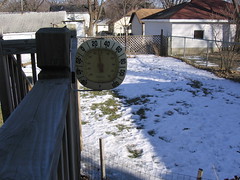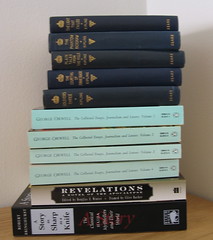Beauty is Only Skin Deep
Beauty is a form of Genius--is higher, indeed, than Genius, as it needs no explanation...It cannot be questioned. It has divine right of sovereignty. Oscar Wilde Beauty is truth, truth beauty, that is all/Ye know on earth, and all ye need to know. Keats Beauty is the mark God sets upon virtue. Emerson Beauty and virtue: the most kissable ass in the world is no guarantee of good intentions. Mason Cooley There are so many ways one can approach The Picture of Dorian Gray, but what fascinate me most are the ideas about beauty and the soul. Dorian Gray begins the book as a beautiful and innocent boy posing for the painter Basil Hallward. Basil uses Dorian as a model for several paintings. All goes well until he paints Gray's portrait. Lord Henry appears and the battle for Dorian Gray's soul begins. Dorian blames Basil for awakening his vanity, but it was Henry who pointed out to Dorian his youth and beauty and crowed about it being all there is. Dorian wishes never to grow old, even declares that he would give his soul for it. And he does. From that moment he belongs to the devil Henry. There are moments when Dorian wavers, after he learns of Sibyl Vane's death and near the end when he can't forget a murder he committed (I won't say who he killed in case you haven't read it). It has entered into the culture at large, the picture of Dorian Gray growing old and changing while the man remains young and free of blemish. But the painting doesn't just grow old. For every sin that Dorian commits, the painting is marred in a subtle, and sometimes not so subtle way. The beautiful painting becomes a visual representation of Dorian's soul. Throughout the book it is expressed over and over that a person's appearance, his or her beauty, is a reflection of said person's soul. Therefore when rumors start to fly about the things Dorian does, few actually believe them because how could someone who looks so beautiful and pure be bad? Conversely, someone who is ugly must be evil. The idea of form reflecting soul has been around since the Greeks. And even my hero of reason, Michel de Montaigne wrestled with it. His beloved Socrates was an ugly man and both he and Socrates had to provide justification for the ugly form that contained a beautiful soul. But Dorian is free to allow his soul to be corrupted by the pleasure-and-beauty-is-everything philosophy of Lord Henry. It is interesting to note, however, that while Lord Henry espouses such a philosophy, he does not live it like Dorian does. Lord Henry flirts with it while Dorian throws his whole being into it. I found Lord Henry to be an interesting character. Not only does he play devil to Basil's angel, he provides commentary on the decadence of an age. Dorian is his plaything. While it appears that Lord Henry, and perhaps it can be said Oscar Wilde, is espousing nothing but pleasure, there is the unavoidable fact of the picture. Dorian and the reader can see what a life in pursuit of nothing but pleasure does to a person. The portrait becomes a counter-commentary to Lord Henry's glib and witty aphorisms. In the end, Dorian cannot bear the portrait's silent accusations and in attempting to destroy it, destroys himself. These days it seems beauty will still get you everywhere. But I think we are also a bit more cynical about it too. With plastic surgery, botox and silicone we know that appearances can be, and often are, deceiving. Join in the discussion about the book at MetaxuCafe





 On the left corner of my desk sit no less than 15 books I intend too read soon. Meanwhile on the right corner of my desk are another 5 books I intend to read soon. And behind me is a five-foot long shelf two books deep all of of which I intend to read soon. Do you see a pattern developing here?
Then there is my list, to which I just added those books I read about in Rain Taxi. There are actually two lists, fiction and nonfiction. The combined number of books on these lists is just shy of 500. Then there are the pieces of scrap paper with book titles on them that are waiting for me to add them onto a list before the scrap gets lost. And of course, there are hundreds of books on shelves throughout the house that I mean to get to someday.
And yet, it's not enough. I want more. More! MORE!
I feel myself getting a little frenzied so to keep myself from going off the deep end, I will redirect my focus to imagining Hedda Gabler
On the left corner of my desk sit no less than 15 books I intend too read soon. Meanwhile on the right corner of my desk are another 5 books I intend to read soon. And behind me is a five-foot long shelf two books deep all of of which I intend to read soon. Do you see a pattern developing here?
Then there is my list, to which I just added those books I read about in Rain Taxi. There are actually two lists, fiction and nonfiction. The combined number of books on these lists is just shy of 500. Then there are the pieces of scrap paper with book titles on them that are waiting for me to add them onto a list before the scrap gets lost. And of course, there are hundreds of books on shelves throughout the house that I mean to get to someday.
And yet, it's not enough. I want more. More! MORE!
I feel myself getting a little frenzied so to keep myself from going off the deep end, I will redirect my focus to imagining Hedda Gabler  In 2004 Owen lost his family when the tsunami hit the coast of Kenya. He was stranded on a coral reef and rescued with the help of a lot of caring humans. Owen could not be returned to the wild because he had lost his pod and other hippo pods do not take kindly to strangers. So he was taken to the sanctuary of
In 2004 Owen lost his family when the tsunami hit the coast of Kenya. He was stranded on a coral reef and rescued with the help of a lot of caring humans. Owen could not be returned to the wild because he had lost his pod and other hippo pods do not take kindly to strangers. So he was taken to the sanctuary of 


